Film Review: “Fatima, Queen of the Night”
Fatima is 40. Not that she looks it, but as she stares into her mirror she thinks about her life’s journey that got her to this point. This enchanting new movie from Cuban actor turned filmmaker Jorge Perugorria is one day in Fatima’s life as she tells her story in a series of flashbacks of how she started out life in the 1980’s as a quiet gay lonely country boy and ended up as a transvestite hooker working Havana’s Fraternity Park.
As a 7 year old boy Manolito (Carlos Enrique Almirante),had a vision of the Virgin of Fatima and he was convinced that she had bestowed a pink halo on him which was one of the few comforts he had living with an abusive homophobic father who was the reason why he left home as soon as he was old enough. After a rough start in the city, he met and fell in love with Andrés (Tomás Cao) an older handsome man who Manolito’s friends dubbed ‘Vaseline’ as he loved to use so much grease in his hair. Andrés was not too bright but he was sharp enough to know that Manolito’s boyish looks would make him very popular with tourists. So although very reluctant at first Manolito, eventually agreed to dress up as a transvestite and work as a hooker because he was so besotted that he would have done anything his man asked him especially as Andrés assured him that this way they could make some good money like this.
As Manolito became Fatima life did get much better financially and the upside of her new life was also getting to fulfill a lifetime ambition of performing as a drag queen on stage. The downside was that with Andrés acting as her ‘pimp’ and now she was the sole breadwinner for them both by all the ‘clients’ she picked up in the park, their own relationship would sour as an unhappy Andrés placed even more demands on her.
What strikes you watching Fatima recount this story now on her birthday like this is that despite her being alone and her life had even gotten much harder, she is so very positive and defiant. She has finally become the person she always wanted to be, albeit at a high price and she keeps repeating ‘I’m the Queen of the night : my body is so hot. Fatima will never give up, Fatima is immortal.’
This extremely likable highly emotional tale about how to survive every adversity was adapted from a best-selling book by Miguel Barnet who had written the story as a monologue. Perugorria’s decision to flesh the narrative in this way was an excellent decision and the end result gives us this wonderful visual look at this troubled Cuban drag queen’s tough life. He was helped enormously by a sublime performance from a terrific Almirante, who is so pitch perfect as Fatima.
Coming out on top after such a rough journey is something that most people admire and aspire too, and this one comes with very good advice too : ‘You could conquer the world wearing the right lipstick’.
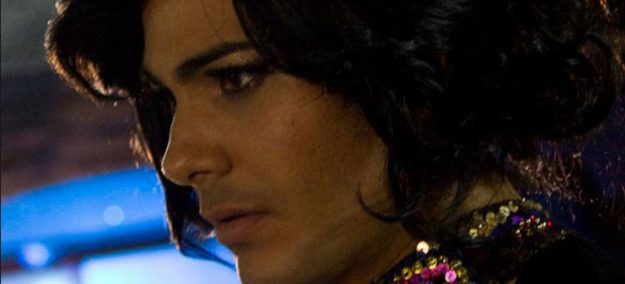
 Diego (Brazilian rock star
Diego (Brazilian rock star 
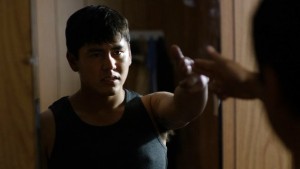 native people do not always look too kindly on what people they call ‘two spirited’ which is essentially how they describe those who have both a masculine side and a feminine side. Shane needs to persuade not just himself, but also David, that they both need to come clean and accept the fact that they are gay. Before he can reach this part, he will make some bad calls of judgement and then be left trying to extract himself out of the messes that he has created.
native people do not always look too kindly on what people they call ‘two spirited’ which is essentially how they describe those who have both a masculine side and a feminine side. Shane needs to persuade not just himself, but also David, that they both need to come clean and accept the fact that they are gay. Before he can reach this part, he will make some bad calls of judgement and then be left trying to extract himself out of the messes that he has created.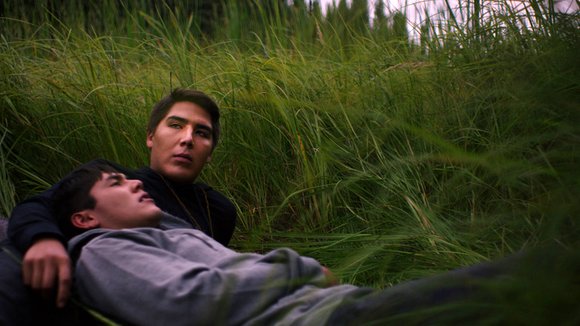
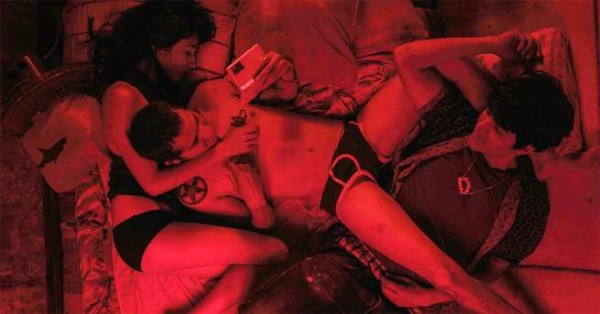

 What strikes you from the start is all the infectious good humor and joy especially as they give accounts of all their dating experiences, several of which occur within the choir’s ranks. They seemed somewhat childishly innocent and so are visibly shocked when their cosy life as a group gets a rude awakening when they are being pelted with bags of human faeces whilst performing at Korea’s first gay wedding. (Their assailant is a Christian Pastor which is the least shocking part of the whole incident).
What strikes you from the start is all the infectious good humor and joy especially as they give accounts of all their dating experiences, several of which occur within the choir’s ranks. They seemed somewhat childishly innocent and so are visibly shocked when their cosy life as a group gets a rude awakening when they are being pelted with bags of human faeces whilst performing at Korea’s first gay wedding. (Their assailant is a Christian Pastor which is the least shocking part of the whole incident).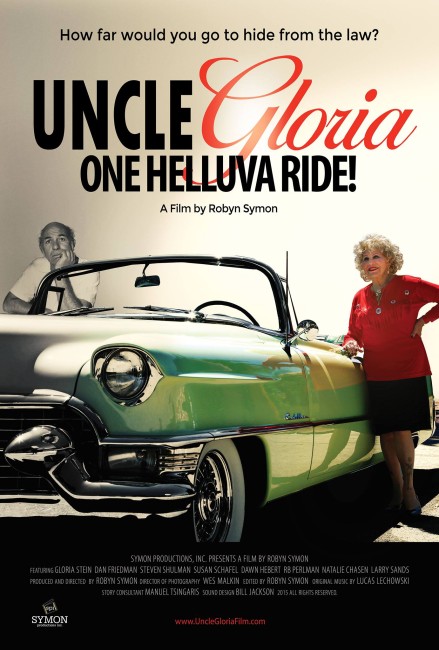 Some people wait an awful long time before they start to come to terms with the fact there were born with the wrong gender, or indeed have the wherewithal to deal with it. Gloria Stein is one such person as she waited until she was 66 years old until she transitioned. In this slightly stranger-than-fiction story we learn that one of the main reasons that prompted her to start the process then was that as Bernard “Butch” Rosichan he wanted to avoid being sent to jail for not making his alimony payments to his second wife. To be fair to Gloria, this wasn’t the only deciding factor, but it was the pivotal point to carry through something she had been working towards for a very long time.
Some people wait an awful long time before they start to come to terms with the fact there were born with the wrong gender, or indeed have the wherewithal to deal with it. Gloria Stein is one such person as she waited until she was 66 years old until she transitioned. In this slightly stranger-than-fiction story we learn that one of the main reasons that prompted her to start the process then was that as Bernard “Butch” Rosichan he wanted to avoid being sent to jail for not making his alimony payments to his second wife. To be fair to Gloria, this wasn’t the only deciding factor, but it was the pivotal point to carry through something she had been working towards for a very long time. Clément is however quite bemused when he spots how a very earnest Elliot is immediately infatuated with him. They have totally different natures and in fact Clément teases his new very wordy admirer for being a budding poet ‘such a cliche’ he says. Nevertheless they take to hanging together at Elliot’s house and it does at least mean that Beatrice has finally got a helping pair of hands with all the packing, and someone who is finally nice to her.
Clément is however quite bemused when he spots how a very earnest Elliot is immediately infatuated with him. They have totally different natures and in fact Clément teases his new very wordy admirer for being a budding poet ‘such a cliche’ he says. Nevertheless they take to hanging together at Elliot’s house and it does at least mean that Beatrice has finally got a helping pair of hands with all the packing, and someone who is finally nice to her.